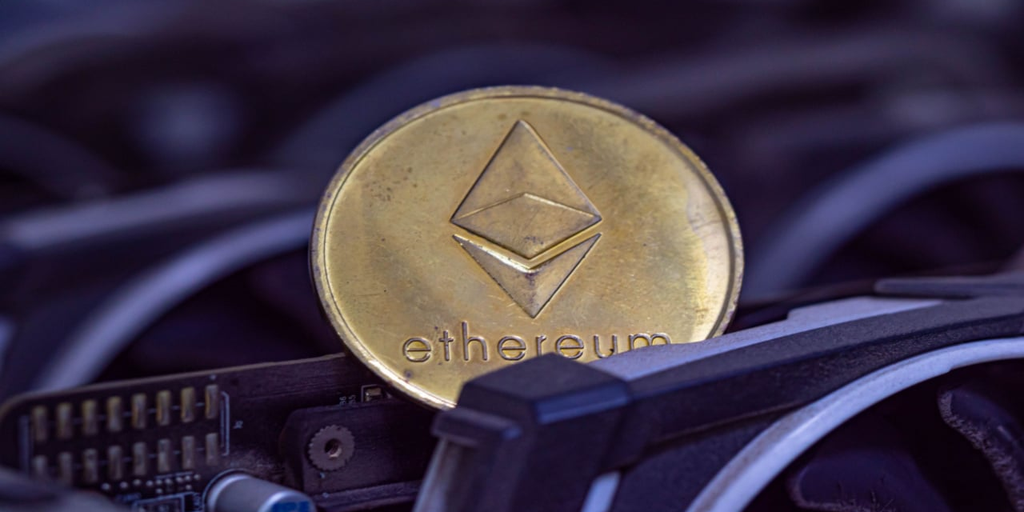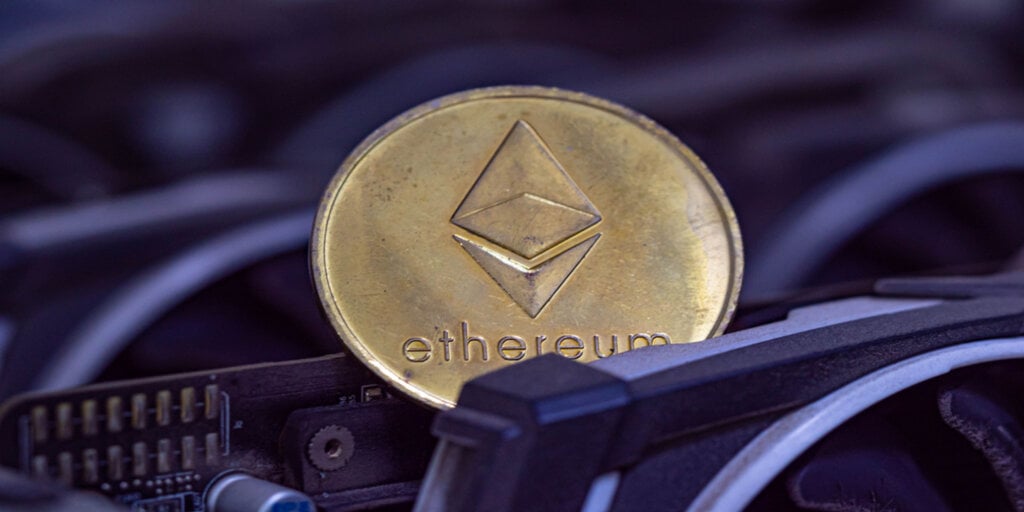
to EthereumIt seems like 2024 was the year where a lot happened and not much at all.
There has been great innovation, but only those who want to make money investing in Ethereum's native currency Ethereum We are a little disappointed – if emotions are running high Twitter encryption (aka X) Anything has to go through it.
Upgrades like Dencun have made it cheaper to get things done on the network, and President-elect Donald Trump has thrown his weight behind a project built on Ethereum. But there was also a regulatory crackdown, leading many to believe that the SEC was being tough on the ecosystem.
Surprisingly consent From the spot ETH exchange-traded funds It turned things upside down, but it did not lead to an explosion in the price of the asset as happened with it Bitcoin counterparts.
However, it was still an exciting and noteworthy year for the blockchain technology behind the cryptocurrency space's second-largest digital currency. Here's a look back at how it all went down.
Organizational repression
In April, rumours It started to hover The SEC may go after Ethereum entirely after the Ethereum Foundation announced that it is under investigation by a state authority.
Next, Wall Street's top regulator and one of the biggest names in Ethereum, software giant Consensys (disclosure: one of 22 investors in Decryption), went to war.
It started when the SEC directed the company with a Wells Notice, a warning of an impending securities violations lawsuit, regarding its popular Ethereum wallet, MetaMask. Consensys was cut off again with A Preemptive suit v. SEC.
The company alleged that the agency had secretly considered Ethereum to be a security for more than a year, claiming that the regulator's actions "would penalize Consensys for accepting and acting on years of government assertions that Ethereum is not a security."
Then, the SEC He filed a lawsuit against Consensys For allegedly engaging in the unregistered offer and sale of securities through MetaMask Swaps and Stake services.
The lawsuit was for Consensys eviction By a judge in September. Trump Winning It was good and bad for the company: the SEC would do that You have a new pro-crypto boss If Trump's pick Paul Atkins is confirmedbut not before Consensys was forced to do so It reduced its headcount by 20% in October. The company cited strict regulations and lawsuits as part of the reason.
ETFs have an impact
After the expected approval and huge trading months for the debut of Spot Bitcoin ETFsIndustry observers didn't think Ethereum would get the same green light — at least not right away — because the regulator wasn't clear on whether the asset was a security or a commodity.
But in a surprise move, the Securities and Exchange Commission agreed. Two months after initial approvals, spot ETFs emerged Trading has begun In July. But despair seemed to set in when the price of ETH did not rise.
The approval of Bitcoin ETFs has pushed the price of Bitcoin to a new all-time high following an all-time high. ETH hasn't been so lucky: As of this writing, it still has a big gap to fill until it breaks the 2021 record of $4,878.
Even if Ethereum's price doesn't skyrocket, the approval of ETFs has scored an important win: the Securities and Exchange Commission has stopped calling Ethereum a security.
Despite its predecessors Saying In 2018 this was the asset no Securities Outgoing SEC Chairman Gary Gensler refused for years to respond to the coin's situation — and hit cryptocurrency company after cryptocurrency company with a lawsuit for allegedly selling unregistered securities.
But the approval of the ETFs showed that the watchdog essentially agreed that the asset was decentralized enough to not be a security. This came as Wall Street recognized ETH and its blockchain as an asset class – even if traditional finance was not It was a difficult time Get his head around Ethereum's value proposition.
It helped that really big names, like BlackRock Chairman Larry Fink, generated some momentum. BlackRock CEO started the year with Saying That he saw “value” in the ETF, and that it was a stepping stone toward “tokenization.”
In March Asset Manager Fired BUIDL - a token fund that runs on Ethereum - later joined the fray with its own exchange-traded fund (ETF).
Even Trump relies on ETH
President-elect Donald Trump campaigned hard before his victory to make America the “cryptocurrency capital of the planet.”
As part of his digital asset-focused agenda, he helped launch a project working on… you guessed it, Ethereum.
Firstly Excited Founded in August by his son, Eric, World Liberty Financial is a decentralized finance project. Decentralized finance – or DeFi – is the field of cryptocurrencies that wants to make obtaining a loan or lending automatic and easy via blockchain-based protocols.
Most DeFi projects are built on Ethereum, so it's no surprise that Trump's team approved the project, but still - it was big news for the community. WLF will provide borrowing and lending services for cryptocurrencies, the team behind the project said in an exclusive interview with Decryption Sister company, Radio Al-Bassat.
The project took off and had some success Slow token release- Open only to accredited investors - but it's still early days. Sources say Decryption The Trump team also has plans to launch a domestic stablecoin, although the market is already crowded.
The second layer takes over
On the technical side, Ethereum has also become cheaper, much cheaper. network Upgrade Dencun Reduce transaction costs on Layer 2 networks. Such networks allow for faster and cheaper transactions than on the mainnet, and Dencun's addition of proto-danksharding technology has further reduced costs for users.
This is the good news. On the flip side, the increasing use of L2s has taken value away from the top layer of Ethereum, which some in the cryptocurrency space believe is responsible for Ethereum's declining price performance this year.
In fact, said Matthew Siegel, head of digital asset research at VanEck he said in October Unless Ethereum gets a “paradigm change,” he expects the price of ETH to reach just $7,300 by 2030 — versus $22,000 under previous forecasts.
He posited that Layer 2 networks are “taking more value from Ethereum” than previously expected. Fortunately, Ethereum founder Vitalik Buterin and others in the field are considering changes, such as fee-sharing models, that could provide more balance to the ecosystem so that L2 languages do not become overly extractive.
Modified by Stacey Elliott and Andrew Hayward
Daily debriefing Newsletter
Start each day with the top stories of the moment, plus original features, podcasts, videos, and more.
Source link
